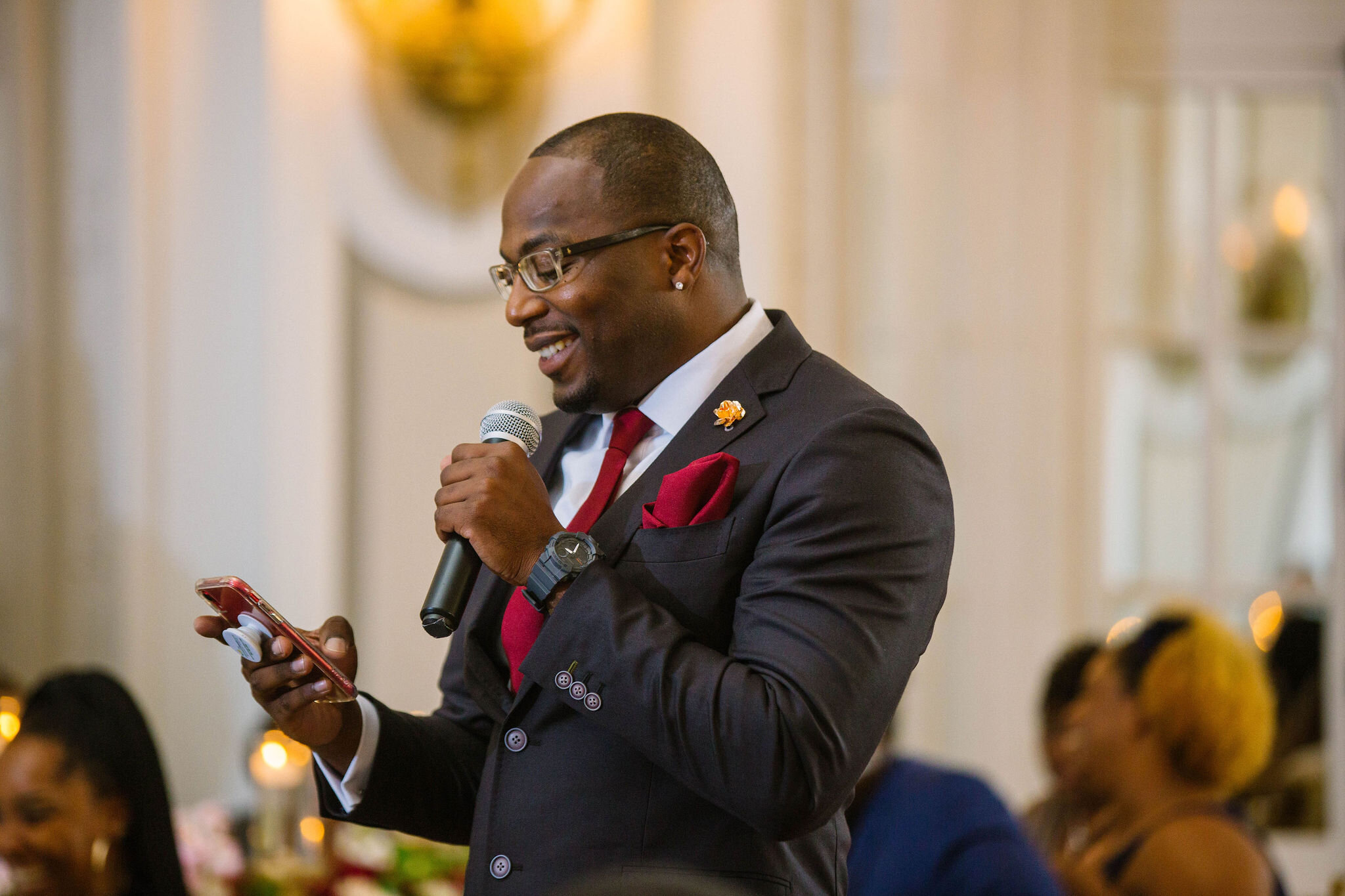The Ultimate Guide to Writing Wedding Speeches That Won't Put Your Guests to Sleep
One of the most memorable parts of any wedding reception is the speeches. Whether you're a sibling, friend, workmate, parent, relative, or the couple themselves, this comprehensive guide will help you craft and deliver a speech that's heartfelt, humorous, and unforgettable. Let's dive into the details for each type of speaker:
1. Siblings of the Couple
As a sibling, you have a unique perspective on the bride or groom. Your speech should be a perfect blend of personal stories, celebration of the couple, and support for their future together.
What to Include:
Personal Stories: Start with a funny or heartwarming story from your shared childhood or growing up together. This could be a moment that showcases your sibling's character or a pivotal moment in your relationship.
Celebration of the Couple: Acknowledge your sibling's partner. Talk about how they complement each other, or share a story about when you realized this person was "the one" for your sibling.
Support and Encouragement: Offer your love and support for their marriage. Remind them that family is always there for them, through thick and thin.
2. Friends of the Couple
As a friend, you've likely witnessed the couple's relationship evolve. Your speech should reflect this unique perspective while celebrating their love.
What to Include:
How You Met: Give a brief introduction to your friendship with the couple. Focus on how you've seen them grow together over time.
Shared Experiences: Bring up a memorable moment you shared with the couple that reflects their relationship. This could be a fun adventure, a thoughtful gesture, or a moment of support during tough times.
Positive Vibes: Finish with a heartfelt message, wishing them happiness and joy in their future together. You might want to include hopes for their shared dreams or adventures.
3. Workmates of the Couple
As a colleague, your unique perspective comes from seeing the couple (or one half of it) in a professional setting. Your speech should balance professionalism with personal touches.
What to Include:
Professional Praise: Talk about the qualities you admire in the person you work with. This could include their dedication, teamwork skills, or problem-solving abilities.
How Love Has Changed Them: If you've noticed positive changes in your colleague since their relationship began, mention these. It could be anything from a more positive attitude to better work-life balance.
Well Wishes for the Future: Wrap up by wishing them success, not just in their careers, but in their marriage. You might draw parallels between skills that make them great at work and those that will serve them well in marriage.
4. Parents of the Couple
As parents, your speech is all about expressing your pride, love, and hopes for the couple's future. It's also an opportunity to welcome a new member into your family.
What to Include:
Gratitude: Start by thanking everyone for coming, especially acknowledging the family of your child's partner. This sets a tone of unity and acceptance.
Pride and Emotion: Speak about how proud you are of your child and how much their partner has enriched their life. Share a brief story that illustrates your child's growth or a quality that makes you particularly proud.
Welcome to the Family: Take a moment to specifically welcome your new son or daughter-in-law to the family. Share what you appreciate about them and how you've seen them positively impact your child's life.
Blessings: Offer blessings for the couple's future. This can include advice for a strong marriage, cultural sayings, or your hopes for their life together.
5. Relatives (Aunts, Uncles, Cousins)
As extended family, your speech should emphasize the importance of family bonds and how marriage strengthens these connections.
What to Include:
Family Bond: Talk about the significance of family in your culture and how marriage creates new connections and strengthens existing ones.
Connection to the Couple: Share any funny or endearing moments you've had with the couple (or one of them if you're only related to the bride or groom). These stories should illustrate their character and the love they share.
Traditional Wisdom: Incorporate a proverb, cultural saying, or piece of advice that has been passed down in your family. Explain its meaning and relevance to the couple's new journey.
6. The Couple (Bride and Groom)
As the stars of the day, your speeches are eagerly anticipated by your guests. This is your chance to express your love for each other and gratitude to your friends and family.
What to Include:
Gratitude: Thank your guests for coming, your families for their support, and anyone who played a special role in making your day perfect.
Your Love Story: Share a significant moment from your relationship. You don't need to recount your entire history, but choose a moment that captures the essence of your bond.
Appreciation for Your Partner: Take a moment to speak directly to your new spouse, expressing what you love about them and what you're looking forward to in your life together.
Promises and Hope for the Future: Reaffirm your commitment to each other and share your dreams for your future together.
Here are some tips to keep in mind
1. Keep it Concise: While we've provided detailed examples, aim to keep your actual speech between 3-5 minutes. This is long enough to share your message without losing the audience's attention.
2. Speak from the Heart: The most impactful speeches come from a place of genuine emotion. Don't worry about making it perfect – sincerity is what your audience will remember.
3. Practice, Practice, Practice: Rehearse your speech several times before the wedding day. This will help you feel more confident and ensure a smooth delivery.
4. Consider Your Audience: While inside jokes can be fun, make sure the majority of your speech is accessible to all guests. Explain any references that might not be universally understood.
5. Balance Humor and Sentiment: A great speech makes people both laugh and cry. Aim for a mix of funny anecdotes and heartfelt wishes.
6. Mind Your Body Language: Remember to make eye contact with the couple and the audience. Speak slowly and clearly, and try to avoid fidgeting or reading directly from your notes.
7. Have a Backup Plan: Write your speech on note cards or print it out, even if you plan to memorize it. Wedding day nerves can make even the best-prepared speaker forgetful!
8. Toast at the End: Conclude your speech by inviting everyone to raise their glasses in a toast to the couple.
Remember, the best speeches reflect the unique personalities of the couple and the speaker. Whether you're aiming for laughs, tears, or both, keep it authentic, keep it loving, and most importantly, enjoy this special moment!
Congratulations to the happy couple, and best of luck to all the speakers. May your words be as beautiful as the love you're celebrating!
If in need of any wedding planning support, kindly write to planner@nyomplanet.com. We'd love to extend our support to you.





